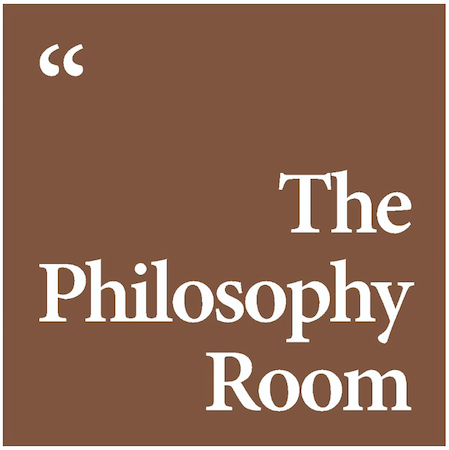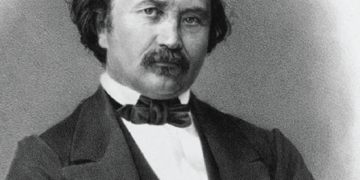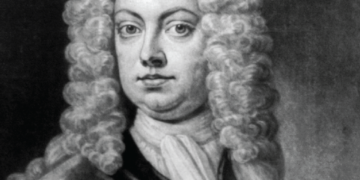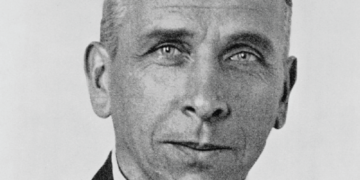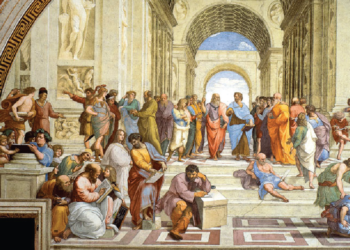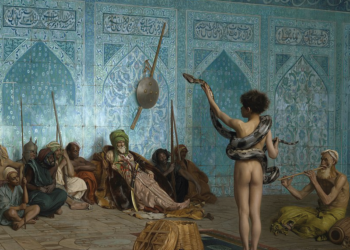Istvan Meszaros
1) His Biography
István Mészáros was born on 19 December 1930 in Budapest, Hungary, into a working-class family during a turbulent period in European history. Growing up in the interwar years and witnessing the devastation of World War II had a lasting impact on his political outlook. The post-war establishment of a Soviet-aligned socialist regime in Hungary influenced his early ideological development. Mészáros studied philosophy at the University of Budapest, where he became a student of the renowned Marxist thinker Georg Lukács. Lukács’s mentorship left a profound impression on the young Mészáros, fostering a lifelong commitment to Marxist humanism and critical theory.
Following the Hungarian Uprising of 1956, during which Soviet tanks crushed the reformist movement, Mészáros went into exile. The suppression of the revolution was a pivotal moment in his life, reinforcing his scepticism of authoritarian socialism. He eventually settled in the United Kingdom, where he would live and work for much of his life. The experience of forced emigration did not deter him from continuing his intellectual journey. On the contrary, it shaped his belief that genuine socialism must be democratic, participatory, and free from bureaucratic domination.
In the UK, Mészáros took up academic positions and began to develop his distinctive critique of capitalism. He taught philosophy at the University of Sussex, where he gained a reputation as a formidable thinker and a principled advocate of Marxist theory. He published widely in academic journals and became a significant voice in leftist intellectual circles. During this time, he refined the ideas that would later appear in his major works, focusing particularly on the structural dynamics of capital and the contradictions inherent in bourgeois society.
His first major publication, Marx’s Theory of Alienation (1970), established him as a significant Marxist scholar in the West. The book was notable for its clear exposition of alienation in Marx’s thought, distinct from earlier interpretations that had often been metaphysical or idealist. Mészáros emphasised the material and social roots of alienation, grounding it in the capitalist division of labour and commodity production. This work gained acclaim for reviving the philosophical core of Marx’s early writings, particularly their emphasis on human emancipation.
In later decades, Mészáros continued to develop his theory of capital’s structural crisis. His magnum opus, Beyond Capital: Toward a Theory of Transition (1995), marked a significant moment in Marxist theory. The book argued that capital is not reducible to capitalism alone but represents a broader system of social metabolic control. This meant that even post-capitalist societies could remain trapped within the logic of capital if they failed to dismantle its fundamental structures. The work received wide attention for its depth, clarity, and originality, influencing scholars, activists, and political movements around the world.
Throughout his career, Mészáros was committed to intellectual independence and often took positions that diverged from both Soviet orthodoxy and Western Marxism. He was critical of reformist tendencies that sought to humanise capitalism and argued instead for a complete rupture with the logic of capital. At the same time, he rejected dogmatic interpretations of Marxism that led to political authoritarianism. His insistence on democratic control, social planning, and the expansion of human potential distinguished his vision from both technocratic socialism and liberal capitalism.
Despite his focus on theoretical rigour, Mészáros remained connected to practical struggles. He supported anti-imperialist movements and aligned himself with the global left, particularly in Latin America. His ideas resonated with leaders such as Hugo Chávez, who cited Mészáros as an intellectual influence in Venezuela’s Bolivarian Revolution. This real-world engagement added a dimension of urgency and relevance to his writings, bridging the gap between theory and practice.
István Mészáros passed away on 1 October 2017, leaving behind a substantial intellectual legacy. His work continues to be studied and debated by scholars of political economy, philosophy, and critical theory. Mészáros’s enduring contribution lies in his refusal to separate theoretical analysis from the imperative of human liberation. His thought remains a vital resource for those seeking alternatives to the contemporary crisis-ridden global order.
2) Main Works
Marx’s Theory of Alienation (1970)
This was Mészáros’s first major work and remains one of his most widely read texts. In it, he offers a rigorous reconstruction of Karl Marx’s theory of alienation, focusing on its roots in material and historical conditions rather than abstract philosophical concepts. Mészáros shows how alienation arises from the separation of labour from its products and from the domination of social relations by capital. He argues that understanding alienation is essential to comprehending the totality of capitalist society. The book was particularly influential for reinvigorating interest in Marx’s early writings during a time when structuralist and economistic readings dominated.
The Necessity of Social Control (1971)
This work explores the concept of social control under both capitalist and post-capitalist societies. Mészáros argues that all societies require mechanisms of control, but the form they take differs fundamentally depending on the mode of production. Under capitalism, control is exercised through market mechanisms, state institutions, and the internalisation of social norms. The book critiques liberal and technocratic assumptions that control can be value-neutral and asserts that a truly socialist society must create democratic and participatory systems of social coordination.
Beyond Capital: Toward a Theory of Transition (1995)
Widely regarded as Mészáros’s magnum opus, Beyond Capital presents a comprehensive critique of capitalism and outlines the challenges of transitioning to a socialist society. He argues that capital is a totalising system of social metabolic control that extends beyond the bounds of capitalism itself. Thus, merely abolishing private property or nationalising industry is insufficient. The book insists on the need to transcend capital’s structural imperatives altogether, including hierarchical labour divisions and commodity-based exchange. This work is noted for its depth, breadth, and its original contribution to understanding the crisis tendencies of global capitalism.
The Challenge and Burden of Historical Time (2008)
This collection of essays and lectures offers reflections on the contradictions of the contemporary era. Mészáros examines the crises facing the capitalist world, including ecological degradation, imperialist aggression, and the erosion of democratic institutions. He situates these issues within a historical materialist framework, arguing that the current epoch demands radical systemic change. The book reiterates his belief that the window for meaningful transition is narrowing and that failure to act decisively will deepen human suffering and environmental collapse.
Socialism or Barbarism: From the “American Century” to the Crossroads (2001)
Drawing inspiration from Rosa Luxemburg’s famous dictum, Mészáros analyses the global implications of American imperial power in the post-Cold War world. He identifies the structural crisis of U.S.-led capitalism and warns of the dangers of a militarised and exploitative global order. The book combines theoretical insight with political urgency, making the case for a renewed socialist internationalism. It also critiques reformist solutions that fail to confront the systemic logic of capital, proposing instead a break with the profit-driven imperatives that underlie imperial hegemony.
The Structural Crisis of Capital (2010)
In this work, Mészáros elaborates on the concept of structural crisis, differentiating it from cyclical or conjunctural crises. He argues that contemporary capitalism is facing systemic breakdowns that cannot be resolved through standard economic or policy interventions. These include unsustainable consumption patterns, intensifying class inequality, and ecological collapse. He also critiques the failure of traditional leftist movements to develop a viable alternative. The book insists that a transformative strategy must address the root structures of capital, not just its symptoms.
The Work of Sartre: Search for Freedom (1979)
Although primarily a Marxist thinker, Mészáros was also deeply engaged with existentialist philosophy. This book offers a critical yet appreciative examination of Jean-Paul Sartre’s philosophical and political evolution. Mészáros explores Sartre’s contributions to ideas of freedom, responsibility, and alienation, situating him within broader debates in twentieth-century philosophy. While highlighting the limitations of Sartre’s thought from a Marxist perspective, Mészáros also acknowledges his role in keeping the question of human liberation alive in post-war European thought.
3) Main Themes
Alienation
A central theme in Mészáros’s thought is the concept of alienation, which he reinterprets through a rigorous reading of Marx. For Mészáros, alienation is not merely a psychological state but a structural feature of capitalist society, rooted in the division of labour, the commodification of human activity, and the subordination of people to abstract systems of value. He stresses that under capitalism, individuals are estranged from their work, their communities, and their own capacities. Alienation, in his view, must be overcome through a transformation of the material and social conditions that perpetuate it.
The Logic of Capital
Mészáros dedicates much of his work to analysing the internal dynamics of capital as a system of social metabolic control. Unlike those who equate capital solely with capitalism, he argues that capital is a broader logic governing production, labour, and social organisation. This logic, he claims, can persist even under post-capitalist regimes if not fundamentally dismantled. The system of capital is driven by accumulation, competitive expansion, and the instrumentalisation of labour, and thus cannot be reformed without losing its essential character.
Structural Crisis
Another major theme is the concept of structural crisis, which Mészáros contrasts with temporary or cyclical downturns. He argues that contemporary capitalism is experiencing a deep-seated crisis rooted in its internal contradictions—such as ecological degradation, overaccumulation, and the decline of productive labour. Unlike previous crises, which were resolved through external expansion or technological innovation, the current phase reveals a terminal condition of the system. This structural crisis, he contends, demands a qualitative break rather than incremental reform.
Transition Beyond Capital
Mészáros was deeply concerned with the problem of transition—how societies can move from the logic of capital to one based on communal control and democratic planning. He emphasises that abolishing capitalism is not sufficient; the deeper structures of capital must also be dismantled. This includes moving beyond wage labour, the commodity form, and hierarchical state institutions. For Mészáros, genuine transition requires participatory democracy, self-managed communities, and a redefinition of social purpose grounded in human development rather than profit.
Social Control and Planning
Throughout his writings, Mészáros insists on the necessity of social control—but in a radically democratic form. He critiques the technocratic and bureaucratic systems of control found in both capitalist and Soviet-style economies, arguing instead for a mode of planning that is bottom-up and responsive to human needs. Control should not be imposed from above by elites or markets but should emerge from collective decision-making processes that reflect the real interests of the people. This theme is closely linked to his belief in the potential of worker self-management.
Critique of Reformism
Mészáros is consistently critical of reformist approaches that aim to humanise capitalism without altering its foundational structures. He argues that such strategies are ultimately futile, as they leave the logic of capital intact. Welfare provisions, regulatory measures, and parliamentary concessions may offer temporary relief but cannot prevent the recurrence of crisis and inequality. He warns that reformism often serves to prolong the life of the system by defusing revolutionary potential and co-opting dissent.
Human Emancipation
At the heart of Mészáros’s project is the goal of human emancipation. He sees socialism not merely as a new economic system but as a radical reorganisation of social life aimed at liberating human potential. This involves creating conditions for self-activity, solidarity, and the full development of the individual. Emancipation, for Mészáros, is inseparable from the overcoming of alienation and the establishment of genuinely communal social relations. It is the driving ethical imperative behind his critique of existing society.
Anti-Imperialism and Global Solidarity
In his later works, Mészáros engages more directly with questions of imperialism and global resistance. He sees the expansionist logic of capital as inseparable from militarism and the domination of the Global South. Mészáros advocates for an internationalist politics rooted in solidarity between oppressed peoples and movements. He views the struggles in Latin America and elsewhere as vital experiments in the search for alternatives to the global capitalist order, reinforcing the importance of linking theory to practice on a world scale.
4) Meszaros as Sociologist
Although István Mészáros is more frequently classified as a philosopher and political theorist, his work has profound sociological implications. His engagement with the structure of capitalist society, the nature of social control, and the role of human agency places him in dialogue with key concerns of sociology. Mészáros’s contribution to sociological thought lies in his rigorous analysis of social structures and his emphasis on the systemic character of alienation and inequality. He viewed society as a historically constituted totality shaped by the dynamics of capital, and his approach was consistently materialist and dialectical.
Mészáros brought to sociology a distinctly Marxist perspective that rejected both functionalist and positivist methodologies. He criticised mainstream sociology for its tendency to naturalise existing social relations and for failing to question the underlying logic of the capitalist system. For Mészáros, sociological inquiry needed to be historical and critical, capable of uncovering the roots of social phenomena in the material conditions of life and production. His method sought to integrate structural analysis with an account of human consciousness and praxis, moving beyond the empirical focus that dominated post-war social science.
Central to his sociological outlook was the concept of alienation, which he treated not as a psychological condition but as a social and structural one. In Marx’s Theory of Alienation, Mészáros demonstrated how the capitalist division of labour fragmented human activity and reduced individuals to functionaries within a system of production. This fragmentation, he argued, extended to all spheres of life—work, family, education, and even leisure—leading to a deeply dehumanised social order. His analysis showed how capitalist social relations reconstituted themselves across time, ensuring the persistence of alienation unless radically overturned.
Mészáros’s critique of bureaucracy and hierarchical control also reflects a deeply sociological concern with power and authority. He analysed how systems of control—both in capitalist democracies and so-called socialist states—functioned to suppress autonomy and concentrate decision-making power. These insights intersect with sociological theories of domination and legitimacy, but Mészáros went further by identifying these patterns as symptoms of the logic of capital itself. His argument was that social institutions, even when restructured in name, would reproduce domination unless the deeper metabolic system of capital was dismantled.
Moreover, Mészáros’s conception of the state diverged sharply from liberal or Weberian models. He saw the state not as a neutral arbiter but as an instrument of class power embedded in the reproduction of capital. He argued that sociologists needed to understand the state’s role not simply in terms of governance or administration, but as a central organ in maintaining the structural domination of capital over labour. This position challenged conventional distinctions between civil society and the state, instead viewing both as mutually reinforcing dimensions of the social totality.
His approach to class also marked a distinctive contribution to sociological theory. Rather than treating class as a static category defined by income or occupation, Mészáros examined class in relation to power over production and control of surplus labour. He was particularly critical of the fragmentation of class analysis in contemporary sociology, arguing that it often obscured the structural antagonisms between capital and labour. His work urged a return to a more comprehensive and dynamic understanding of class as a relation of domination and exploitation within a broader social metabolism.
Finally, Mészáros’s sociological vision was never merely descriptive—it was deeply normative and emancipatory. He believed that the task of critical sociology was to illuminate the contradictions of existing society and to help chart a path beyond them. His insistence on the unity of theory and practice meant that sociology, for him, could not remain a detached academic discipline but must participate in the struggle for a new society. In this sense, Mészáros stands as a powerful advocate for a radical sociology committed to the transformation of the conditions that give rise to injustice and alienation.
5) Meszaros as Marxist
István Mészáros’s work is firmly rooted in the Marxist tradition, yet it represents a distinctive and original development within it. His interpretation of Marxism is both critical and expansive, aiming not merely to defend Marx’s ideas but to deepen and extend them in response to the evolving crises of modern capitalism. He took seriously Marx’s call for a revolutionary critique of political economy, seeing Marxism as a living, dynamic framework that must confront new historical conditions. As such, Mészáros’s Marxism is marked by a strong emphasis on theory, a commitment to radical change, and a focus on the systemic nature of capital.
One of Mészáros’s major contributions to Marxist thought was his analysis of alienation. While many Marxists during the twentieth century prioritised issues like class struggle, surplus value, and historical materialism, Mészáros returned to the early Marx, particularly the Economic and Philosophic Manuscripts of 1844. He saw alienation not as a secondary concern, but as the foundational experience of life under capitalism. His reading of Marx challenged deterministic and economistic interpretations, arguing instead for a humanist Marxism that placed lived experience and the development of human potential at its core.
Equally significant is Mészáros’s formulation of capital as a “social metabolic system.” Unlike traditional Marxist approaches that equated capital with specific institutions like the market or private property, Mészáros viewed capital as a totalising force that shapes all dimensions of social life. This perspective enabled him to critique not only capitalism but also the failures of actually existing socialism, particularly in the Soviet bloc. He maintained that many post-capitalist societies retained the structural logic of capital—centralised control, division of labour, bureaucratic domination—even after nationalising property. For Mészáros, genuine socialism required the transcendence of capital in its entirety.
In his magnum opus, Beyond Capital, Mészáros develops what might be considered one of the most advanced theoretical critiques of contemporary capitalism within the Marxist tradition. He warns against the reduction of Marxism to economism or political strategy alone, arguing instead for a full rethinking of how capital reproduces itself across institutions, social relations, and everyday life. The book takes Marx’s project forward by identifying the systemic obstacles to revolutionary transformation and articulating a path that demands both theoretical clarity and collective praxis.
Mészáros also set himself apart by his critique of reformism. While acknowledging the appeal of short-term reforms, he warned that they often entrench the system they seek to soften. This position placed him in sharp contrast with social democrats and revisionist Marxists who believed in the gradual transformation of capitalism through parliamentary means. For Mészáros, such approaches not only failed to challenge the underlying structures of capital but actively diverted energy away from more radical alternatives. His insistence on structural change rather than piecemeal reform speaks to a core tenet of his Marxism: the need for a rupture, not an adaptation.
Another defining feature of Mészáros’s Marxism is its global scope. He consistently linked local and national struggles to the broader dynamics of global capital. He was especially attentive to the contradictions of imperialism and the role of the United States in maintaining a militarised global order. His work urged Marxists to engage with struggles in the Global South, which he saw not as peripheral but as central to the possibility of a break with the global capitalist system. In this, he remained faithful to the internationalist spirit of Marx’s own thought.
Despite his theoretical density, Mészáros never lost sight of the revolutionary aims of Marxism. He believed that theory must inform practice, and that intellectual work should serve the broader struggle for human liberation. His Marxism was not academic or abstract, but urgent and engaged, shaped by a deep moral concern for the future of humanity. He consistently argued that the window for systemic change was narrowing and that failure to confront the destructive logic of capital would result in ecological catastrophe and intensified social breakdown.
6) His Legacy
István Mészáros’s legacy rests on his formidable contribution to Marxist theory and his enduring influence on critical thought across disciplines. Widely regarded as one of the most important Marxist philosophers of the late twentieth and early twenty-first centuries, Mészáros left behind a body of work that continues to inspire political theorists, social scientists, and activists seeking to understand and challenge the structures of contemporary capitalism. His insistence on moving “beyond capital” has become a touchstone for those dissatisfied with both reformist approaches and the failures of state socialism.
Perhaps the most significant aspect of Mészáros’s legacy is his revitalisation of Marxist theory at a time when it was often dismissed as outdated or discredited. He offered a rigorous and original reappraisal of Marx’s work, particularly the themes of alienation, labour, and the state. By reintroducing these foundational concepts and applying them to new historical conditions, Mészáros demonstrated that Marxist analysis remained indispensable for understanding global crises, from economic inequality to environmental collapse. His work became a critical resource for those seeking to retain the emancipatory core of Marxism without replicating past dogmas.
A vital part of his legacy is his critique of both capitalism and what he termed the “post-capitalist” systems that failed to transcend capital’s logic. By showing how bureaucratic planning, wage labour, and hierarchical control persisted in the Soviet bloc and elsewhere, Mészáros contributed to a deeper understanding of why socialist experiments faltered. His distinction between capitalism and capital allowed for a more nuanced critique and helped redirect attention to the underlying structures that must be dismantled for genuine transformation to occur. This perspective has informed recent socialist movements that seek to avoid the pitfalls of both market reformism and authoritarian statism.
Mészáros also influenced generations of scholars through his careful and uncompromising theoretical work. His books, though dense and intellectually demanding, have become foundational texts in radical theory. Beyond Capital, in particular, has attained near-canonical status among Marxist theorists. Figures such as Hugo Chávez publicly praised Mészáros’s work, and it helped shape the discourse around 21st-century socialism in Latin America. His impact in these contexts went beyond the academic; it influenced state policy and ideological direction, reflecting his commitment to the unity of theory and practice.
His legacy includes a reaffirmation of the value of critical theory in an age of growing technocracy and political disillusionment. Mészáros championed the role of human agency in historical change, arguing that systemic transformation was not only necessary but possible. In this sense, his work stands against the tide of political pessimism that has grown in neoliberal societies. He believed that meaningful change would come not from elites or institutions, but from the self-activity of the masses engaged in democratic struggle. His legacy, therefore, includes a profound optimism rooted in material analysis and ethical commitment.
Mészáros also left a lasting mark through his critical engagement with the ecological dimensions of capital. Long before climate change became a central political issue, he had identified the destructiveness of capital’s expansionist logic. He argued that the survival of the planet depended on dismantling this system and building new forms of collective life centred on sustainability and social need rather than accumulation. His warnings about the ecological consequences of capital now appear prescient and have drawn renewed attention to his work from environmental thinkers.
Importantly, Mészáros’s legacy is sustained through his challenge to the fragmentation of knowledge and the compartmentalisation of academic disciplines. He insisted on a holistic, dialectical understanding of society, one that refused to separate economics from politics or sociology from philosophy. This integrative vision of theory has proven especially relevant in a time of interlocking crises—economic, ecological, political—that cannot be adequately addressed through narrow analytical lenses. His work offers a methodological example for future scholars committed to understanding and transforming society in its totality.
